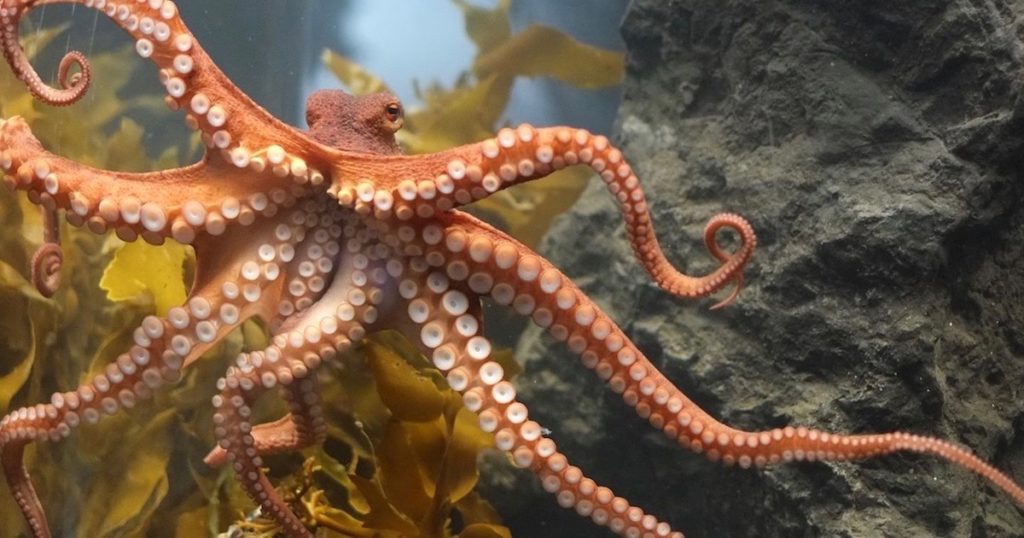 Neuroscience & Mind
Neuroscience & Mind
Octopuses Get Emotional About Pain, Research Shows

The octopus is becoming a popular creature among neuroscientists. It is a very smart invertebrate with an unusually complex nervous system, organized in a fundamentally different way from that of, for example, mammals. Recently, a researcher has found the first strong evidence that octopuses feel pain, as opposed to merely reacting to it.
There are two parts to pain: The natural physical reaction, like a sophisticated alarm system, sets off a chain of involuntary responses. But that chain of responses, by itself, doesn’t prove that any “self” is feeling anything. The alarm system would work just the same in an empty building as in a populated one.
The second component can be called “emotional.” The life form experiences the pain in a unified way as undesirable. That is like people in the building rushing either to or from the scene of the emergency, in response to the alarm. The alarm does not program them to automatically do that. They are doing it in response to anxiety and the need to protect life. Generally, invertebrates like octopuses were not thought to feel things in that sense.
How Do We Know?
How could we know whether an octopus feels pain? One enterprising researcher decided to put octopuses through a test developed to study pain responses in lab rats. Would the octopuses behave the same way? San Francisco State University neurobiologist Robyn Crook found that
After a single training session in a three-chambered box, octopuses that received an injection of acetic acid into one arm showed clear avoidance of the chamber in which they received that shot.
Those injected with non-harmful saline, on the other hand, showed no such avoidance.
Furthermore, when the octopuses that had been given a painful injection were then administered lidocaine (an analgesic), they tended to prefer the chamber in which they experienced immediate pain relief. Those that received saline only couldn’t care less about the chamber where they had analgesic applied.
CARLY CASSELLA, “OCTOPUSES NOT ONLY FEEL PAIN PHYSICALLY, BUT EMOTIONALLY TOO, FIRST STUDY FINDS” AT SCIENCEALERT(MARCH 5, 2021) THE PAPER IS OPEN ACCESS.
So the octopuses learned to avoid circumstances that, without harming them, gave them pain. They reacted more strongly to greater pain.
Perhaps We Can Never Know
There is a level at which we can perhaps never know whether octopuses feel pain in an emotional sense. But wait, we have just the same problem with lab rats! We don’t know what it is like to be a sentient but not an intellectual being. Perhaps rats and octopuses suffer less than we do but they could also suffer more.
Contrary to what we might think, an active intellect typically suppresses and contains pain, rather than magnifying it. Dr. Michael Egnor explains, in relation to human babies vs. adults:
Certainly anyone who is had any experience with very young or premature infants can attest that children at this age seem to experience pain quite intensely. I have cared for hundreds of premature infants and it is very clear that these very young children experience pain intensely. An innocuous needlestick in the heel to draw small amount of blood would ordinarily not be particularly painful for an adult. But a tiny infant will scream at such discomfort.
Of course, the infants are humans. But they are humans whose intellects are as yet undeveloped so they can’t localize and contain the pain very easily.
Read the rest at Mind Matters News, published by Discovery Institute’s Walter Bradley Center for Natural and Artificial Intelligence.
